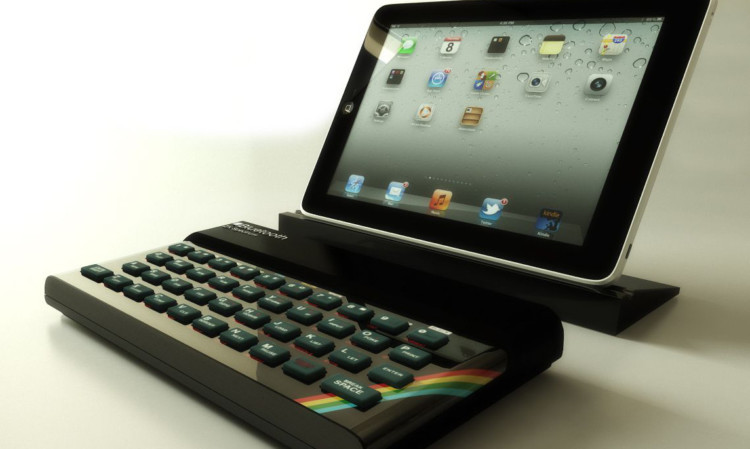It was manufactured in Dundee and helped spark the computer revolution in the UK now the humble Sinclair ZX Spectrum is about to be given a new lease of life as a Bluetooth keyboard for smartphones and tablets.
Designers of the new keyboard have kept the infamous rubber keys and have even celebrated the home computer’s Scottish heritage with a special version decorated with a saltire.
The Spectrum’s predecessors the ZX80 and ZX81 had both sold well to computing enthusiasts, but it was the arrival of the Spectrum model that turned home computing into a mass market hobby.
ZX Spectrums were originallymanufactured at the former Timexfactory in Dundee.
The first ZX Spectrum was launched on April 23 1982 with two versions on sale: one version with 16 kilobytes of memory, selling for £125; and a 48k model for £175.
Production continued in Dundee until Sinclair was sold to Amstrad and production was transferred toTaiwan around 1986.
Although Spectrums were primitive compared to the technology available today, they were credited for creating a wave of bedroom programmers across the UK and in Dundee, which led to the city becoming Scotland’s centre for software development.
Groundbreaking games such as Lemmings and Grand Theft Auto were originally created in the city.
Now mobile games company Elite Systems is planning to bring theSpectrum back as an iPhone accessory.
Elite has launched a campaign to raise £60,000 on Kickstarter to begin manufacturing the retro keyboards.
The resurrected Sinclair ZXSpectrum will initially be available for Apple devices and later for phones and tablets running Android and Windows operating systems.
The Bluetooth Spectrum will connect wirelessly to other devices and allow users to play an array of old Spectrum games that can be downloaded from the main app stores.
It will also work as an ordinarykeyboard for smartphones and tablets.
Users with Apple Airplay will be able to project the display on to their television screens as well.
If there is sufficient demand, the company intends to launch an initial production run of 1,000 units which they hope to sell for between £39.99 and £49.99.
Elite Systems co-founder SteveWilcox said: “It’s anticipated that in the region of half of the £60,000 initial goal which we have set for this appeal will be expended upon the first 1,000 production units.
“This represents the single biggest pre-release cost and risk associated with the Bluetooth ZX Spectrum.It is a cost and risk to which we will not commit until the demand for the Bluetooth ZX Spectrum is known.”
Elite was originally a leading developer and publisher of what were groundbreaking games for the Sinclair Spectrum and Commodore 64 home computer systems.
Today, Elite is a highly specialised developer and publisher of game software products for handheld, mobile and wireless systems.I’ll never forget my SpeccyIt may seem bizarre, but there will be no shortage of misty-eyed adults wanting to turn their high-spec tablets into low-tech Spectrum computers, writes Stefan Morkis.
Like many people born in the ‘70s, my first experiences of home computing came via the Sinclair ZX Spectrum.
Although I assured my parents it had educational purposes, I amassed a vast collections of games all of which had to be loaded painstakingly from tape and none of which taught me anything.
Despite this, the humble “Speccy” may be to blame for my career in journalism.
The first time I saw my name in print was after I managed to get a cheat for a game published in Your Sinclair magazine.
Spectrums may be yesterday’s technology, but for many people, myself included, they were a huge part ofour childhoods.
